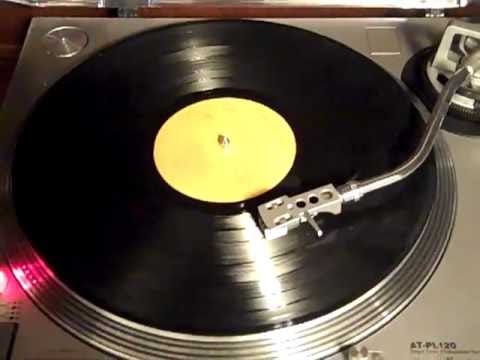I've got little more than an hour until kickoff of the football game that matters most to me this weekend: the undefeated (so far!) University of Tennessee Volunteers, ranked No. 8 in the BCS poll, play my team, No. 25 LSU (4-1). (Update: The Vols crushed LSU 40-13. Old war cry: "Geaux Tigers! New war cry: "At least we're not the Sooners" of Oklahoma, who were humiliated 49-0 by their nemesis Texas in the famous Red River Rivalry.)
That the Tigers might be underdogs is a real turnabout for Tennessee, since the Vols have been in recent years overmatched by the platinum programs in the Southeastern Conference (SEC), whose members include Alabama, Georgia, Florida, Auburn, and Ole Miss (University of Mississippi). Fourteen teams, seven in two divisions. Going into serious divisional play, only one of those 14 teams had a losing record: Missouri (2-3), which played Georgia so tough in a loss last weekend that it knocked the Bulldogs down a notch in the rankings. The Bulldogs are from the college town of Athens, Ga., that gave us both R.E.M. and Herschel Walker.
That's the South.
The only sports league that provides as much regional excitement is the English Premier League: What we in the U.S. call "soccer." Also note that creativity in mascots or team names is not abundant in the SEC. Three teams: LSU, Auburn, and Missouri are all known as the Tigers, as is neighboring Clemson in the ACC. Which is why LSU, to distinguish itself, uses the Cajun spelling as its cheer, so one must learn to spell "Geaux Tigers," which is pronounced roughly as "go Ty-guz." It was fun when a new colleague who had just gotten a PhD from LSU joined the St. John's University journalism department a few years ago. I asked her simply: "Do you know how to spell 'go'?" And even though from Germany, and not a football fan, she knew what I was talking about.
Growing up in suburban Long Island, just across the New York City line, there is no tradition of college football fandom. Yet I’ve been a Tigers fan since I was eight years old, in 1958. I must have read about LSU, the dominant team in 1958 and 1959, in Sports Illustrated, or TV highights. Representing the team was always a picture of the rock star-handsome and charismatic Billy Cannon, who won the Heisman Trophy that year, on the cover and the UPI (United Press International) coaches poll as college athlete of the year.
LSU was 10-0 in 1958, and won the Sugar Bowl against Clemson (Jan. 1, 1959), with Cannon throwing a touchdown pass. He was a running back and wide receiver and defensive player.
But the most famous game in LSU history was the following year. Halloween night in 1959, at home in the LSU stadium known as “Death Valley,” LSU trailing 3-0 in a defense-dominated game in the fourth quarter. Cannon returned an Old Miss punt for an 89-yard touchdown run. Later, as Ole Miss lined up for what would have been the winning TD on 4th and goal, Cannon and Warren Rabb, the quarterback, also on defense, made the tackle that gave LSU the win.
In those days, substitution rules were strange and rigid, so most teams played both offense and defense. You had to be a 60 Minute Man. This tended to exhaust players, especially in the southern swamps, so LSU coach Paul Dietzel came up with three specialty squads: The "White" team (btw, all players were white in segregated days) was the first string; the second team, which would substitute en masse to give the white team a rest, was originally the Gold team, also known as the "Go team" because a sportswriter misheard the name. "Go" team fullback Tommy Davis (who later starred with the L.A. Rams) also kicked extra points and field goals. There was very little passing in southern football in that era: Ole Miss tried three that entire Halloween game.
The third squad was the defense, known as the Chinese Bandits. I know, this would never be tolerated now, and should not have been tolerated then. Dietzel, who went on to greater fame as the football coach at Army, got the idea from the old jingoistic comic strip, "Terry and the Pirates," in which the bandits were depicted as small but fierce villains. In our era, where college football linemen on either side of the ball might be 340 pounds of iron-pumped muscle and run the 40 yeard dash in 4.6 seconds, the Chinese Bandits were in some cases literally half the size. Only two of them hit the scales at slightly over 200 pounds, and some were about 5 foot, 6 inches and weighed around 160. As a small kid who thought himself fierce, I identified with the Bandits. Right now, I am the size of Go team left halfback Don Purvis (5' 7", 160 pounds.)
Dietzel's three-squad approach meant that 33 players would see action in every game, instead of just the 11 playing offense and defense at other schools. His players were motivated, and well-rested.
A 2018 story in the Baton Rouge Advocate celebrated the 60th anniversary of that 1958 LSU team. But it left out the fall and redemption story of Billy Cannon, a Louisiana morality tale if there ever was. After a pretty good career with the Houston Oilers and the Oakland Raiders of the American Football League, he became a dentist, an orthodontist, made real estate investments, and liked the race track.
But Cannon was such a protypical Louisiana rags-to-riches-to-jail story that he may be the model for the title character in Walker Percy's 1977 novel Lancelot. We meet Lancelot Lamar, a boozed-up country lawyer from a proper local family, an amnesiac, in a psychiatric prison. Lancelot's youthful pinnacle was running back an Alabama punt from the back line of the end zone for 110 yards, a record mathematically unsurpassable. He burned down his family's plantation house, Belle Isle, because he suspected his wife of having an affair with a Hollywood film crew shooting a movie there.
Cannon's real-life fate was to get involved with a counterfeiting ring, and served two-and-a-half years in a minimum security federal prison in Texarkana, Texas. He eventually became the prison dentist at Louisiana State Prison in Angola.
Music and food and literature also play into my fondness for LSU, swamp rock and zydeco and gumbo, even though I have never gotten closer to Baton Rouge than Covington, La., where I attended a Walker Percy conference at his hometown's library in the late 1990s, and got invited to an intimate reading group hosted by his widow, Bunt Percy, at their home in Covington's Bogue Falaya. When I arrived in Covington, it was hotter than I expected, and I went to Walmart to buy a pair of shorts with LSU purple and gold logo.
I’d always loved New Orleans rock and r&b, even before I knew what it was called. Around the time I recognized I was the proudest, youngest Tigers fan on Long Island, I also bought as one of my first singles Huey "Piano" Smith’s “Don’t You Just Know It.” Frankie Ford's "Sea Cruise" was a natural fit, and later, Dr. John's "Gumbo" album introduced me and many others to the originators of this music. Hearing Professor Longhair when I was in college was like starting out on burgundy and moving to the harder stuff. My first reaction was: Where do I get some crawfish? I soon went on the first of many pilgrimages to Louisiana.
As it turns out, Huey Smith, Frankie Ford, and Dr. John were all involved in a one-shot single by a group they called the Cheerleaders, or the Cheer Leaders, who had a regional semi-hit called "Chinese Bandits." It was brought to my attention by a Memphis law professor who attended the University of Arkansas.
"At the time the song came out, I was a high school senior in Hot Springs, Arkansas and WKNO [New Orleans] was our favorite late night radio station," my correspondent e-mailed me many years ago. "After writing you, I spent a good bit of time on web sites with song lyrics trying to find the 'Chinese Bandits' song but with no success."
Even with my deep collection of 1950s-1960s New Orleans and Louisiana music, I had never heard of the song. But it just happens that my compadre Steven Ward, formerly of Baton Rouge, now a journalist in Mississippi, knew the song and found it for me about 12 years ago. Now it's on You Tube, as is a weird song with the same name by the alt-rock band Better Than Ezra, which formed at LSU.
"Chinese Bandits," by the Cheerleaders also appears on an anthology on Bandcamp, "An Intro to Night Train New Orleans," a division of our friend Aaron Fuchs' R&B and hip-hop specialty label Tuff City Records.
The song was released in 1960; It's 2 minutes and 3 seconds of rolling New Orleans rock'n'roll piano with lyrics that concisely pays tribute to the aggressive defenders: "Chinese bandits they can knock/Gonna stop a touchdown/chop chop." According to the now-defunct Rockabilly Europe web bio of New Orleans rocker Jerry Byrne (said to be a cousin of Mac "Dr. John" Rebennack), he was one of the Cheer Leaders, as was Rebennack, Huey Piano Smith and Frankie Ford—an all-star effort worthy of the similarly talent-rich LSU Tigers of 1958-1959.
Ford, of "Sea Cruise" fame, is most likely the featured vocalist. The B-side, "True Love," is also available in corners of the internet, but before purchasing and downloading either Cheer Leaders' track, I recommend playing a free audio sample if available: there was a second file also identified as "Chinese Bandits" that is mislabeled; the second song sounds like an early Aaron Neville ballad, title uncertain. Not bad, but if you're an LSU fan, it ain't the Cheer Leaders. Geaux Tigers.
How deep does my fondness for LSU go? After my first wife and I got divorced in the early 1980s, she paid for me to have a past life spiritual cleansing. The spiritualist studied my aura and suggested I may have been Cajun in a past life. My name was Wayne Robichaux.





6 years in the Quarter. I get it.